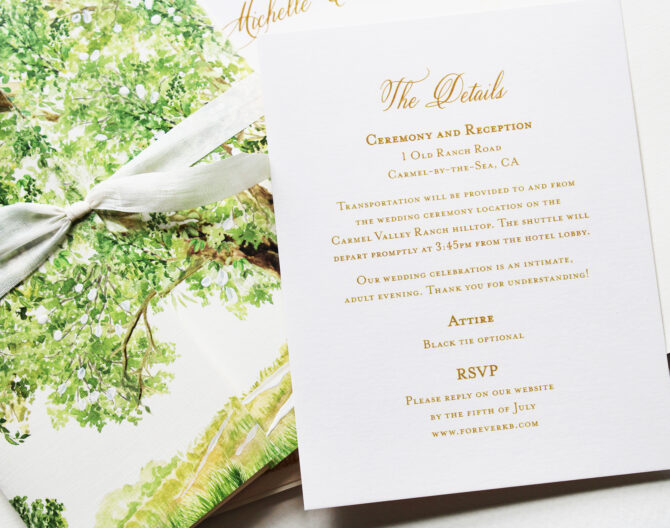This expert-approved guide offers sensitive and effective approaches for informing your guests that your special day will be an adults-only affair, ensuring everyone understands and respects your wishes
I was recently invited to an adults-only destination wedding. While I don’t have any kids, I was wondering how my friends with young children would manage, and how the couple gracefully communicated the fact that they wanted a child-free wedding without hurting anyone’s feelings.
Increasingly, more couples are opting for child-free wedding celebrations. Deciding to host an adults-only wedding is a personal choice, but communicating it to your guests can be a little tricky. How do you convey your decision clearly and kindly without offending anyone? And how do you gracefully navigate when guests push back? To help you navigate this sensitive issue without compromising on your vision and not offending anyone, we spoke to leading wedding planners and experts. Here’s a handy guide on how to gracefully inform your guests that your wedding celebrations are child-free.

Your Invitation: Setting the Tone From the Start
It’s crucial to state that you’re having a child-free celebration in your save-the-date, wedding invite, and wedding website. Choose the wording thoughtfully so you don't ruffle any feathers.
“Be upfront early and include clear wording on your save-the-date and website, such as, ‘We love your little ones, but this will be an adults-only celebration.’ Framing it as a thoughtful decision made for the experience you’re creating helps set the tone with kindness and clear communication,” declares Jaclyn Watson, wedding planner and owner of Jaclyn Watson Events. “If guests push back, a personal phone call with empathy and consistency in your message can go a long way.”
Wedding experts advise that the key to communicating that you’re choosing to have child-free nuptials is to be clear, consistent, and kind. Additionally, mentioning the adults’ names on the invitation immediately signals who is invited and helps avoid confusion.
“The best way to communicate who is invited to the wedding is via an inner envelope with the invited guests’ first names written or printed,” adds Gina Jokilehto, owner and creative director of Shi Shi Events. “Adding a line for the number of guests attending on your reply card below the guest name line is also a helpful tool for making sure only guests reply as attending. Should a guest reply with a number above what was invited, then a phone call to the guest is made with a kind but succinct explanation that the guest list is being kept intimate and adult.”
Spreading the Word: Beyond the Formal Invite
According to the pros, it’s a good idea to inform your immediate family and close friends about your child-free decision even before sending out the invites. They can help you spread the word, reinforce your message gently, and answer questions from other guests. This proactive approach helps manage expectations and minimises ambiguity when formal invites are received.
“For many of our couples, choosing to host a child-free wedding isn’t about exclusion—it is about intention. Some couples want their guests to be fully present and enjoy an elevated experience without distractions, and that is completely valid. Planning and communicating in advance go a long way. Start telling your close friends and family before any official invites or save-the-dates go out, so you can manage expectations up front and avoid any surprises,” mentions Nirjary Desai, luxury event planner and founder of Kis(Cubed) Events.
Gracefully Handling Push Back: Empathy and Firmness
You must acknowledge how hosting a child-free wedding will impact your friends and family. If guests push back (it’s likely some will), listen to them and clearly explain why this is important to you. Maintain your boundaries kindly but firmly, emphasizing that this decision is integral to the vision of your special day.
“One thoughtful way to handle this is by clearly stating your preference upfront on your invitations and wedding website, using gentle language. If guests push back, reaffirm your decision, ensuring them it’s nothing personal, just a choice you’ve made for your special day,” mentions Craig Peterman, photographer, videographer, and founder of Craig Peterman Photography & Videography.
Thoughtful Gestures: Offering Childcare Options
While you’re not obligated to provide childcare, arranging local childcare services or connecting out-of-town guests with babysitters will show your thoughtfulness and consideration for their needs.
“Having all the people who mean the most to you in one place for your wedding weekend is incredibly meaningful. Offering the considerate gesture of childcare as an option for your guests can be a wonderful way to ensure everyone can attend, unwind, and truly enjoy the celebration with you, even if the little ones aren’t on the guest list,” mentions Michelle Jackson, photographer and owner of Bambino International.
The Golden Rule: Consistency is Key
It’s vital that you apply your child-free policy consistently across all guests, including your wedding party. Any perceived bias could lead to misunderstandings and hurt feelings. Being consistent will reinforce that it’s a general preference for your wedding, not a personal snub against any specific family.
“When hosting a child-free wedding, couples should include this information on both the wedding invitation and wedding website, so the guests are made aware and also know you aren’t singling anyone out; this applies to all guests,” remarks Kelley Nudo, client relations and operations director at Momental Designs.
Defining ‘Child-Free’: Setting the Age Limit
Moreover, it’s advisable to clearly define what you mean by ‘child-free.' Does it include infants? Toddlers? Older children? It’s best to set a specific age limit (e.g., 16 or 18). Communicating an age cut-off ensures there’s no ambiguity, helping your loved ones understand exactly who is invited to the celebration.
Thoughtful Inclusions: Celebrating with All Ages
Lastly, if you would like to host a child-free wedding but still wish to celebrate with your younger guests, you could organize a separate, child-friendly gathering. This enables you to have the wedding you envision while ensuring that all your loved ones feel included and cherished.
Desai concludes: “To show how much you care, offer childcare options, vetted sitter recommendations, or even a separate kid-friendly gathering if your budget allows. Setting boundaries around your day is a form of self-care. Clear communication, framed with kindness and intention, ensures your wishes are respected—and your celebration remains true to you.”
Written by Pallavi Mehra | Cover photo by Sandbox Studios













You must be logged in to post a comment.